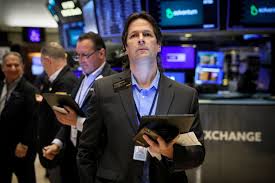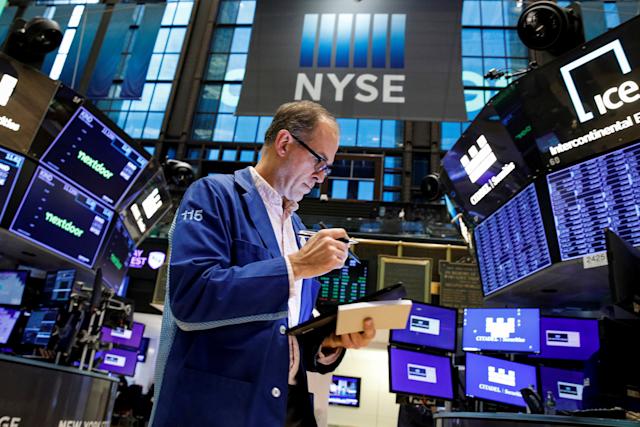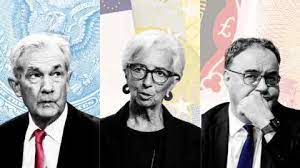The war in Ukraine has tended to increase uncertainty regarding inflation and growth prospects. When and with what consequences this war will end is pure speculation, but capital markets are expected to build a certain immunity to the headline risks in the coming weeks. The medium- to long-term consequences, on the other hand, could be significant. It is possible that we are at the beginning of a new bloc formation or a new Cold War. This would put a significant damper on globalization and further fuel higher structural inflation.
US stocks pared gains in the last hour of the volatile Wednesday session as investors were digesting recent remarks by Fed Chair Powell. The S&P 500, the Nasdaq 100, and the Dow closed marginally lower. The energy sector remained the main drag due to the fall in crude oil prices while consumer staples were trading slightly higher. In Europe, major indices managed to stage a late comeback but not enough to close the day in positive territory.
Summary
- Asian shares reversed earlier gains to be mostly flat this morning as investors continued to monitor recession concerns. The Hong Kong market managed to hold on to some gains following news that Chinese President Xi Jinping chaired a top-level meeting on Wednesday that approved a plan for the healthy development of China’s large payment firms and fintech sector.
- European and US equity futures fell this morning on growth concerns.
- Oil prices sank over 2.5% on Thursday, extending losses from the prior day and touching their lowest in over a month, on lingering worries that aggressive US interest rate hikes could trigger a recession and dent fuel demand. In the meantime, the US EIA said its weekly oil data, which was scheduled for release later today, will be delayed until at least next week.
- In testimony to the Senate banking committee on Wednesday, Fed Chair Powell acknowledged that steep interest rate hikes may cause a recession in the US, and avoiding it mostly depends on the factors beyond Fed control. Meanwhile, Deutsche Bank and Citigroup now see a 50% recession chance as rates rise.
- The annual inflation rate in the UK increased to 9.1% in May from 9% in the previous month, the highest since 1982 and in line with market expectations. On a monthly basis, consumer prices went up 0.7%, above forecasts of 0.6%, with main upward pressure coming from food and non-food prices.
- A political crisis in Bulgaria deepened as Prime Minister Kiril Petkov’s government lost a vote of no-confidence, raising the prospects of a fourth general election within two years. His government was ousted as it tried to break a deadlock in European Union enlargement talks with Balkan nations, which led a junior coalition member to quit partly because it opposed efforts to aid neighbouring North Macedonia’s entry bid to the bloc.
- France President Emmanuel Macron acknowledged he has to compromise and negotiate with rivals, in his first public address to the French people since losing his outright majority in parliament. Macron became the first newly elected French president in two decades to fail to win an absolute majority of seats in the lower house, amid strong gains by the far right and radical left.






